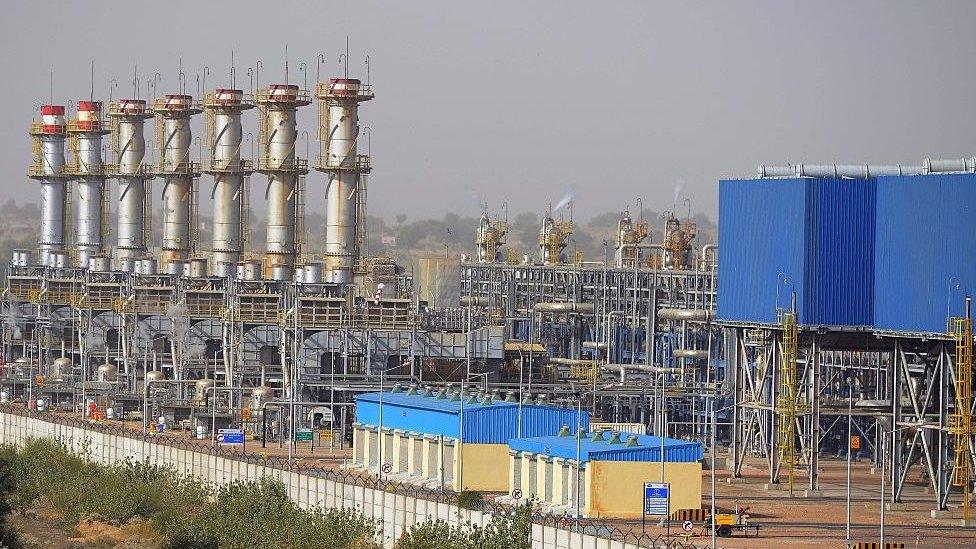Cairn Energy threatens to seize Indian government assets
- Published

Cairn Energy has threatened to seize Indian government assets following a $1.2bn (£880m) award from a long-running corporate tax case.
The Edinburgh-based energy firm was awarded damages by an international tribunal in the high-profile dispute with the Indian government last month.
Cairn has started identifying assets it could seize if the Indian government does not comply with the order.
Sources have said that these could include planes and ships.
The case was filed after income tax officials seized Cairn's 10% stake in its Indian subsidiary.
In December the tribunal ruled unanimously that Delhi had violated the 2014 UK-India bilateral investment treaty.
It ordered Delhi to pay $1.2bn in damages, plus interest and costs, to compensate Cairn for the shares as well as confiscated dividends.
But since the 582-page judgment was issued, Indian prime minister Narendra Modi's government has given no indication about whether it intends to honour the verdict, even though payment was due immediately.
Cairn has sent a letter to Indian government officials, seen by both Reuters and the Financial Times, saying its shareholders "expect early resolution, failing which they will expect Cairn to pursue the award in conformity with its rights under the treaty".
"The award can be enforced against Indian assets in numerous jurisdictions around the world for which the necessary preparations have been put in place," the letter added.
Although the letter did not specify when assets might be seized, possible targets could include those owned by public sector enterprises such as state-owned Air India.
Long-running battle
Cairn's battle with Indian authorities stems from a 2012 law that changed the country's tax regime retrospectively.
In 2014 tax authorities cited the new law to claim unpaid dues stemming from Cairn India's 2006 corporate reorganisation.
If it does happen, India would not be the first country to face seizure of its international assets from an energy company.
In 2019, Venezuela was ordered by the World Bank to pay ConocoPhillips more than $8bn to compensate for the 2007 expropriation of oil assets by the country's late socialist leader Hugo Chavez.

Tax terror gives India a bad press
By Nikhil Inamdar, India business correspondent
Cairn is not the only company to have challenged and won against India's demands for taxes retrospectively in an international forum.
In September 2020, Vodafone Group Plc won an arbitration case against the government on similar grounds. And a third case still, is due in The Hague in a long-running dispute between India's space agency ISRO and a commercial entity Devas - where a final decision is awaited.
Experts say India's reputation has taken a severe beating as a result of these cases.
Prime Minister Narendra Modi had famously promised to bring an end "tax terror" after coming to power in 2014.
Instead his government has been seen as obstinately pursuing these tax claims in a bid to extract higher revenue.
For now, India seems unwilling to buckle under all the bad press. It has already challenged the Vodafone ruling in a Singapore court.
A similar move in the case of Cairn is not being ruled out, but would further damage India's record for contract enforcement believe experts.

"This is becoming a sore point for foreign investors. The government needs to resolve it objectively, rather than from an ego perspective," Indian tax adviser Dinesh Kanabar told the BBC.
In an earlier interview, billionaire biotech entrepreneur Kiran Mazumdar Shaw, the new vice chair at the India-US Business Council also flagged "outstanding tax disputes with large corporations" as a key impediment to India's desire to position itself as a preferred investment destination.
Related topics
- Published23 October 2017
